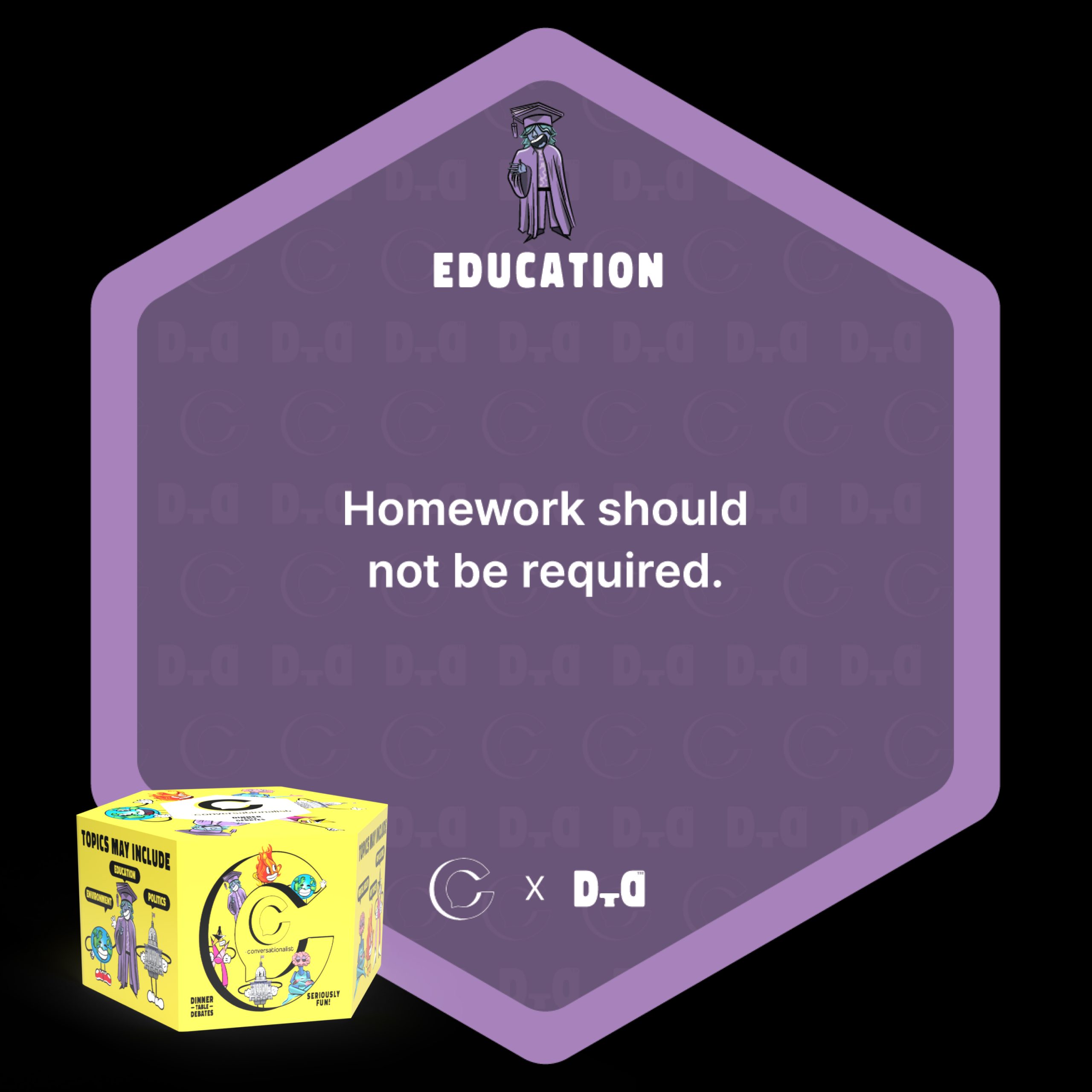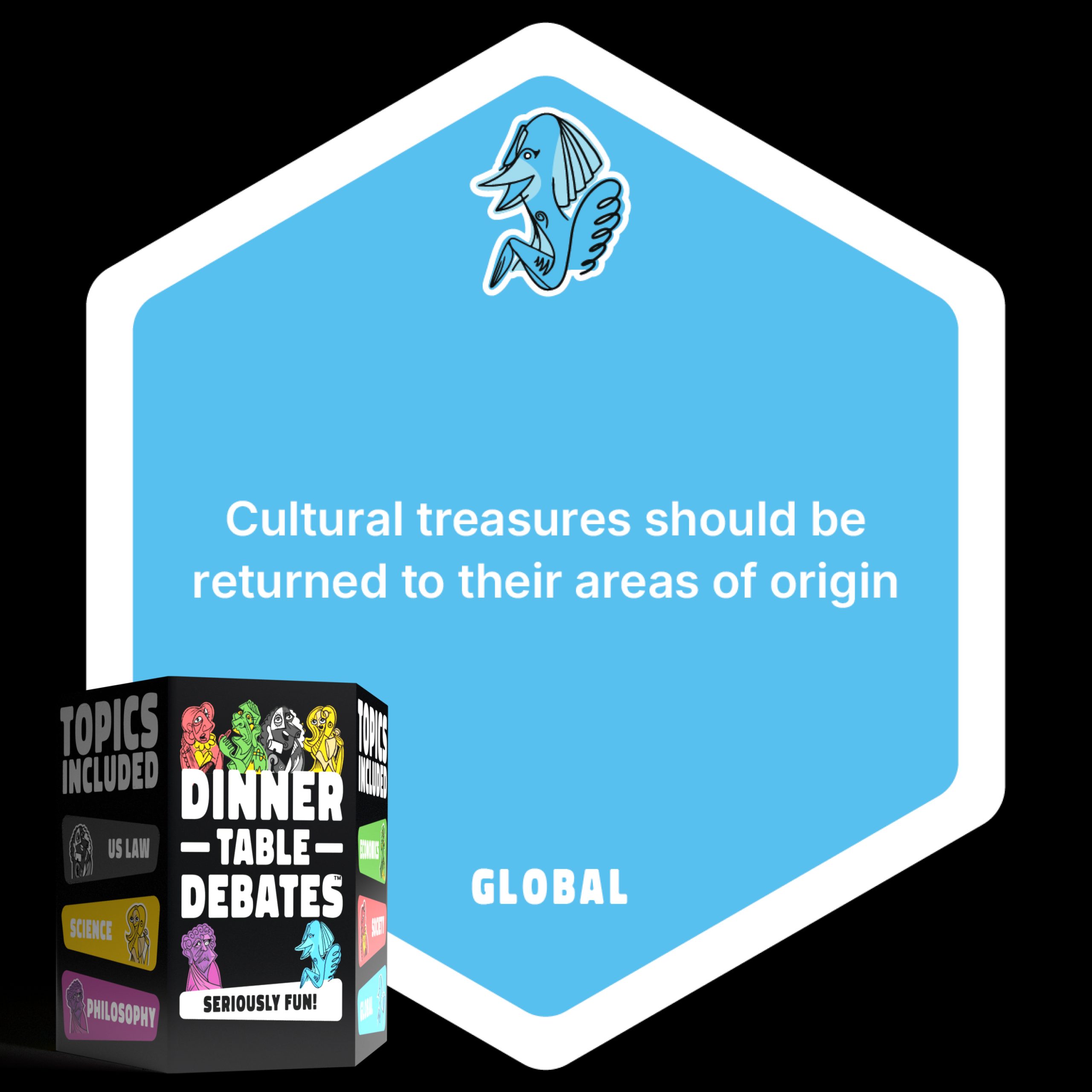Do you remember the first time you solved a complex math problem—the satisfaction of finding the right answer? Or maybe you recall losing yourself in a beautiful painting or a thought-provoking play. Which of these experiences has had a greater impact on shaping the world we live in? Math has given us everything from skyscrapers to smartphones, while the arts have shaped our cultures, our identities, and even our sense of meaning. But when it comes down to it, which field truly holds more value for society?
Welcome to your Dinner Table Debates Daily Deep Dive where we explore real topics from our decks and give you everything you need to debate, in under 10 minutes. Today's topic is “The study of math is more valuable to society than the study of arts” and comes from our Full Size Essentials Collection deck. Let’s dig in.
Math and the arts are often seen as polar opposites—one rooted in logic and numbers, the other in creativity and expression. Yet, both play critical roles in shaping our world. Mathematics is often referred to as the universal language, underpinning advancements in technology, engineering, and medicine. For example, calculus is foundational to everything from designing airplanes to understanding climate change. On the other hand, the arts enrich our lives in profound ways, from fostering empathy through storytelling to preserving cultural heritage. A 2019 study from the National Endowment for the Arts found that students involved in arts education scored higher on standardized tests and had better social-emotional skills. On the other hand, data from the U.S. Bureau of Labor Statistics highlights the tangible impact of math-related careers, with jobs in STEM fields growing at nearly double the rate of other professions.
This debate is more than academic; it’s about the values we prioritize as a society. Do we place greater importance on the practical, problem-solving power of math, or the cultural and emotional depth provided by the arts? Your stance on this topic might influence how we allocate funding, shape education, and prepare future generations.
Math drives technological and medical advancements: From life-saving medical equipment to the algorithms powering artificial intelligence, math is the backbone of modern innovation. For instance, during the COVID-19 pandemic, mathematical models were essential for predicting virus spread and informing public health strategies. Economic benefits: Math-related fields contribute significantly to economic growth. According to the U.S. Bureau of Labor Statistics, jobs in STEM fields not only grow faster but also pay significantly higher wages than non-STEM jobs, fueling both individual and societal prosperity. Universality and practicality: Math is a universal language that transcends cultural and linguistic barriers, enabling global collaboration. Whether it’s designing infrastructure or managing finances, mathematical skills are essential for solving real-world problems.
The arts foster empathy and cultural understanding: The arts help us understand ourselves and each other, bridging divides and promoting social cohesion. For example, during times of crisis, music and art have been powerful tools for healing and uniting communities. Mental health and well-being: Studies show that engaging in the arts can significantly improve mental health. A 2020 report by the World Health Organization highlighted how arts participation reduces anxiety, depression, and stress, all of which are critical for a functioning society. Innovation requires creativity: While math might provide the tools, creativity—nurtured through the arts—fuels the innovation behind groundbreaking ideas. Steve Jobs famously said that Apple existed at the intersection of technology and the humanities, illustrating how the arts and math work hand-in-hand.
While STEM fields undeniably boost the economy, the arts also contribute billions annually through industries like film, music, and fashion. Moreover, they enhance the quality of life, which is harder to quantify but equally important. Math, too, has mental health benefits. Learning math builds critical thinking and problem-solving skills, which can boost confidence and resilience, particularly in children. This debate highlights the interplay between logic and creativity, underscoring the complexity of prioritizing one over the other.
In recent years, there’s been a push for STEAM education—adding Arts to the traditional STEM framework. Advocates argue that integrating the arts into STEM fosters innovation and makes education more inclusive. Governments continue to debate how to allocate funds, with some prioritizing STEM initiatives to compete in a tech-driven global economy, while others advocate for increased support for the arts to preserve cultural heritage and creativity.
Want to dig into this topic even more? Well, when you’re playing Dinner Table Debates at home, you can have Agree set the stage and choose how to define the debate. This means they can outline the terms, context, and interpretation, creating a unique and dynamic conversation every time. Here are some ways that Agree could redefine this debate topic: The study of math is more valuable to society than the study of arts in K-12 education. Should schools allocate more resources to STEM programs? How would this affect students' overall development? The study of math is more valuable to society than the study of arts for solving global issues. Can math alone address challenges like climate change? What role do the arts play in raising awareness? The study of math is more valuable to society than the study of arts for economic growth. Which industries rely more heavily on math versus arts? How do cultural industries impact tourism and GDP?
If you enjoyed our deep dive, you can debate this topic and many more by getting your own Dinner Table Debates deck at DinnerTableDebates.com. It’s a unique game because every round starts with randomly assigning agree or disagree, then you pick the topic, meaning that you might be debating for something you disagree with or vice versa. But that’s the point! Stretch your brain, gain clarity, improve critical thinking and empathy, and have fun doing it! Save 10% on your order when you use the code PODCAST10. You can also join the debate on our Instagram and TikTok accounts at DinnerTableDebates. Get ready for some thought-provoking discussions that will challenge your assumptions and broaden your understanding of the world around you! Happy debating and remember everyone is always welcome at the table.

When you think about the word "homework," what comes to mind? Maybe it’s late nights hunched over a desk, trying to solve math problems...

In the British Museum, visitors marvel at the Rosetta Stone, a priceless artifact that unlocked the secrets of ancient Egyptian hieroglyphs. Yet, its journey...

Do you remember the last time someone said something so outrageous it left you questioning the boundaries of free speech? Maybe it was a...